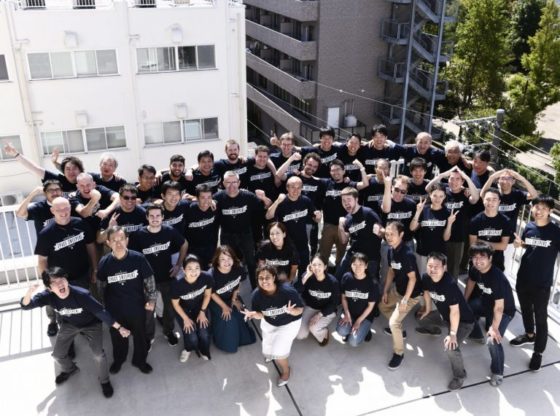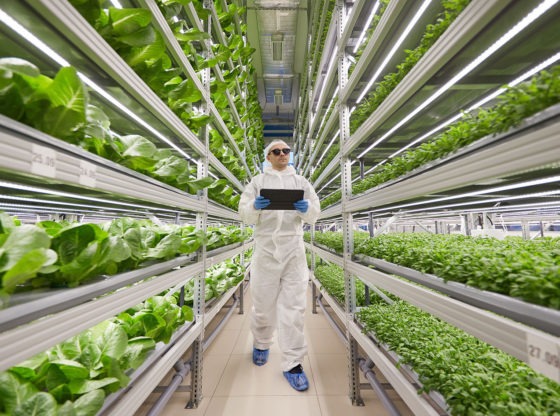Online food delivery platform Swiggy has raised $43 million (Rs 327 crore) in its ongoing Series I funding round led by existing investor Chinese internet giant Tencent. Ark Impact Asset Management, Korea Investment Partners (KIP) and MACM India Growth Fund are the new investors.
Tencent infused Rs 142 crore, Ark Investment more than Rs 70 crore, KIP Rs 35 crore and MACM Growth Fund invested Rs 14 crore. Regulatory filings have not been done for the remaining amount.
The latest investment takes Swiggy’s total round size to $156 million and the company’s value stood over $3.6 billion.
A report in The Economic Times said that the latest fund-raising comes about 45 days after Swiggy raised $113 million led by South African internet giant Naspers, along with Hadley Harbour Master Investments and Meituan Dianping.

“As we continue to strengthen and expand our services that offer unparalleled convenience to our consumers…we welcome the new investors on board. Our focus remains to execute on our vision while building a sustainable path to profitability,” said Swiggy CFO Rahul Bothra said on April 6.
The announcement from Bengaluru headquartered company comes within days of rival Zomato raising $5 million from Pacific Horizon Investment Trust. Media reports pegged Zomato’s value at $3.25 billion post the round.
The Indian food delivery market has seen the emergence of two major players Gurugram-based Zomato and Swiggy, which are fighting for a larger share of the business in India.
Swiggy

Swiggy is India’s largest and most valuable online food ordering and delivery platform. Founded in 2014, Swiggy is based out of Bangalore, India and, as of March 2019, was operating out of 100 Indian cities. In early 2019, Swiggy expanded into general product deliveries, under the brand name Swiggy Stores.
In September 2019, Swiggy launched instant pick up and drop service Swiggy Go. The service is used to pick up and drop off a diverse array of items, including laundry and document or parcel deliveries to business clients and retail customers.
Swiggy works with 1.6 lakh restaurant partners and serves consumers across 520 locations in the country. Besides restaurant delivery, Swiggy operates its own cloud kitchens, grocery delivery and also lists out shops in the vicinity where orders can be placed through the platform.
Foodtech scenario in India

Almost non-existent a few years ago, the Indian innovation ecosystem now has nearly 4300 startups and 77 food startups to look at very carefully. The Indian middle class is growing, the number of smartphone users too and thanks to the increase in online users, this burgeoning market has serious assets to attract business investment and encourage the development of start-ups. From 2011 to 2018, $10.8B have been invested in the Indian Foodtech economy, compared to $688M in France.
Indian FoodTech startups have seen an increase in investments in 2017 ($4.8B, from $288M in 2016) while the number of deals is constant (24 in 2017, from 24 in 2017). The Indian ecosystem is at its beginning and promises greats surprises. However, these key figures have to be analysed and nuanced. Indeed, India counts four big players, Flipkart, Swiggy, Big Basket and Zomato, which represent 93% of the global investments of the country.
2018 has to be considered with and without the big four. Indeed, there is a decrease in investments with the four principal startups ($2.3B in 2018, from $4.8B in 2017), but an increase in investments without them ($270M in 2018, from $121M in 2017).
The $2.3B invested in Indian FoodTech startups in 2018 could be enough to put India as the second leader in the Asian market behind China with a global share investment of 16%. Bengaluru is becoming the place to be for Indian FoodTech startups.
Corona effect

Several companies in the ready-to-eat category have claimed to see a rise in demand for their products such as curries/ meals, batters, instant mixes, desserts as well as frozen snacks. “Demand for frozen snacks in retail has increased by 25% to 30% when compared to the pre-Covid period. The demand is continuing to grow especially for high quality and trusted Indian brands,” Sachid Madan, chief executive – frozen snacks, fruits and vegetables, ITC Ltd told BrandWagon Online.
According to a report by market research firm RedSeer Consulting, the ready-to-cook market in India which stood at Rs 2,100 crore in 2019, is expected to grow at a CAGR of 18% to reach Rs 4,800 crore by 2024. As per the report, the ready-to-cook market is segmented into the non-frozen and frozen product with the former taking bulk share of the market at present. However, non-frozen RTC is expected to grow at a faster pace compared to frozen RTC food and the mix of frozen and non-frozen RTC is expected to evolve from 73%:27% in 2019 to 70%:30% by 2024. “As conservatism on stepping out takes centre stage, brands will need to innovate their offerings to drive the category post lockdown. Besides, the need to leverage digital medium and television to advertise is immense with the rise in consumption of content on OTT, social media and television,” Saurabh Uboweja, managing partner, BOD Consulting explained.
MTR Foods, which sells a range of packaged foods, claims to have seen an uptake of about 20%, despite facing issues such as supply chain, sourcing, market access, initially. “E-commerce contribution in the last two months has doubled for us. We are almost touching five percent from 2-2.5% earlier,” Sunay Bhasin, chief marketing officer, MTR Foods said. In order to leverage the growth, MTR Foods claims to be investing in its own e-commerce platform which currently serves about 15,000 codes. The firm also plans to increase its advertising spends on digital which currently accounts to almost 10% of the overall spends.
The increase in new distribution channels is also a reason behind the rise in the sale of these products. For instance, Haldiram’s, which earlier sold its ready-to-eat products through Amazon and Flipkart, has now tied up with Swiggy and Zomato to market its products. “We have also tied up with a few corporate houses as conventional catering has taken a backseat among rising concerns around health and safety,” Gaurav Mahajan, head of marketing, Haldiram, noted. ITC too has tied up with Swiggy, Zomato, Dunzo, Scooty to expand its presence while also introducing ITC-On-Wheels, a mobile store which offers a range of the company’s products to consumers at their door-steps. “This has been targeted at residential welfare associations (RWA) who have been partnering with us to bring a range of food products to their residents,” Madan explained. Moreover, the company claims to be expanding its in-store visibility and sampling, along with participating in a number of exhibitions to enhance its reach. The next level of growth, analysts say, will be driven by food-tech platforms like Swiggy which plans to venture into the DIY Meal Kits delivery service. As people stay indoors the reliance on ready-to-eat food items is expected to reach its peak, which means – the competition will intensify.
Swiggy, nevertheless, has been working to enhance services of ‘Dunzo’ for the delivery of essentials. Apart from that, the foodtech unicorn has announced that it has set up a relief fund called ‘Swiggy Hunger Savior Covid Relief fund’, which will be used towards ensuring the safety and welfare of its delivery partners and their families.
The company plans to use these funds to further expand its new businesses and continue to invest in grocery delivery, concierge services, and micro-delivery arm SuprDaily, the report said.
Are you a startup looking for investment? Please reach out to us at contact@investocracy.co.










